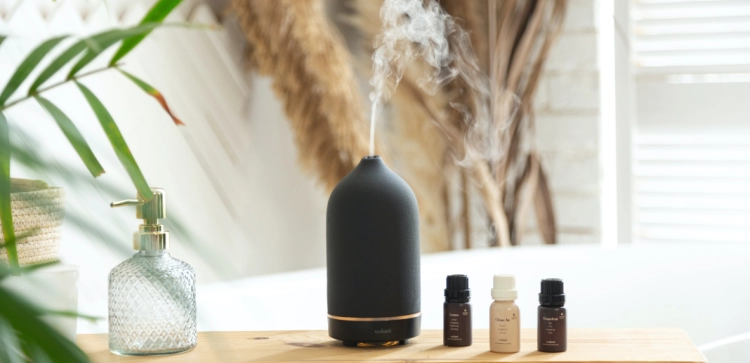Journaling can be a helpful tool for improving mental health in a number of ways. Here are a few ways that journaling can be beneficial:
- Reducing stress and anxiety: Writing about your feelings and emotions can help you process and release them, which can reduce feelings of stress and anxiety.
- Improving mood: By focusing on positive experiences and gratitude in your journal, you can shift your perspective and improve your overall mood.
- Enhancing self-awareness: Writing about your thoughts and feelings can help you develop a deeper understanding of yourself, your emotions, and your reactions to different situations.
- Identifying patterns and triggers: By tracking your moods and emotions in your journal, you can identify patterns and triggers that may be contributing to mental health issues.
- Providing a sense of control: Journaling can give you a sense of control over your thoughts and feelings, and provide a space to reflect on and work through difficult emotions.
Journaling can be a great way to help manage depression. When you're feeling down, it can be hard to know where to start or how to get things off your chest. By writing down your thoughts and feelings, you can begin to make sense of them and work through your emotions.
One of the main ways that journaling helps with depression is by providing an outlet for negative emotions. By writing down negative thoughts and feelings, you can release them from your mind and process them in a safe and non-judgmental space.
Journaling can also help you identify patterns and triggers that may be contributing to your depression. By tracking your moods and emotions over time, you can begin to see how different situations and experiences impact your mental health. This can help you identify areas where you may need to make changes, such as setting boundaries, seeking support from others, or making adjustments to your lifestyle.
Journaling can help you develop a more positive outlook on life by focusing on gratitude and positive experiences. By writing about things that you're grateful for or moments of joy and happiness, you can shift your focus away from negative thoughts and feelings and begin to build a more optimistic perspective.
Yeah, meditation can be a helpful tool for managing depression. It can help to calm the mind, reduce stress, and improve mood. By practicing meditation regularly, you can develop a greater sense of self-awareness and mindfulness, which can help you better manage negative thoughts and emotions associated with depression.
Meditation can also help you to develop a greater sense of compassion and empathy, both for yourself and others. This can help you to feel more connected to the world around you and develop a more positive outlook on life.
Overall, while meditation is not a cure for depression, it can be a helpful tool for managing symptoms and improving overall mental health. It's important to note, though, that if you are experiencing symptoms of depression, it's important to seek professional help from a mental health provider.
Yes, meditation can be a helpful tool for managing ADHD symptoms. By practicing mindfulness meditation, individuals with ADHD can learn to develop greater awareness of their thoughts, emotions, and bodily sensations, and cultivate better focus, attention, and self-regulation skills.
Meditation can help to train the brain to become less distracted and more focused. By practicing meditation regularly, individuals with ADHD can improve their ability to concentrate, control impulsivity, and manage their emotions.
Research has shown that regular meditation practice can lead to improvements in working memory, cognitive control, and overall executive function in individuals with ADHD. Meditation can also help to reduce stress and anxiety, which are common co-occurring conditions in people with ADHD.
It's important to note that while meditation can be helpful for managing ADHD symptoms, it is not a substitute for professional treatment. If you are struggling with ADHD, it's important to seek guidance and support from a mental health provider who can provide you with individualized treatment and support.
The amount of time between meditation sessions depends on your personal preference and schedule. Some people may meditate once a day, while others may meditate several times a day.
It's generally recommended that beginners start with shorter meditation sessions, such as 5-10 minutes, and gradually work up to longer sessions as they become more comfortable and experienced with the practice. It's also important to listen to your body and mind, and adjust the frequency and duration of your meditation sessions based on your individual needs and goals.
Ultimately, the goal of meditation is to cultivate a sense of mindfulness and presence in your daily life, so you may find it helpful to incorporate short mindfulness practices throughout your day, such as taking a few deep breaths or pausing to appreciate the present moment.
Yoga is a great form of exercise that can help you build strength, flexibility, and balance, but it may not be the most effective way to build large amounts of muscle mass.
While yoga does use your body weight as resistance and can help build lean muscle over time, it generally doesn't provide the same level of muscle-building stimulus as more traditional strength training exercises, such as weightlifting. However, certain types of yoga, such as power yoga or hot yoga, may provide a more intense workout that can help build muscle more effectively.
That being said, the amount of muscle you can build with yoga will depend on a variety of factors, including your body type, your fitness level, the specific types of yoga you practice, and the frequency and intensity of your practice.
If your goal is to build large amounts of muscle mass, you may want to consider incorporating additional strength training exercises into your routine, such as weightlifting or bodyweight exercises. However, if you're looking for a low-impact, full-body workout that can help you build functional strength and flexibility, yoga can be a great option.
Trying to meditate for 30 minutes each time can be challenging, especially if you're new to the practice. However, it's not necessarily too much if you're committed to building a regular meditation practice and are willing to work up to longer sessions over time.
If you're just starting out, it's generally recommended that you begin with shorter meditation sessions, such as 5-10 minutes, and gradually work up to longer sessions as you become more comfortable with the practice. This will allow you to build your concentration and focus gradually, and avoid feeling overwhelmed or discouraged.
If you're finding it difficult to sit for 30 minutes at a time, you may want to consider breaking your meditation into shorter sessions throughout the day. For example, you could meditate for 10 minutes in the morning, 10 minutes at lunchtime, and 10 minutes in the evening. This can help you build your practice gradually and make it more manageable.
Mindfulness can be a helpful tool for managing anger. By practicing mindfulness, you can learn to become more aware of your thoughts, feelings, and physical sensations in the present moment. This can help you to identify triggers and patterns that may be contributing to your anger, and to develop a greater sense of self-control and emotional regulation.
Mindfulness can also help to reduce stress and promote relaxation, which can help to reduce feelings of anger and irritability. By learning to stay present in the moment and respond to situations rather than react impulsively, you can develop greater control over your emotions and reduce the intensity and frequency of angry outbursts.
While mindfulness is not a cure for anger, it can be a helpful tool for managing and reducing feelings of anger and irritability. If you are struggling with anger management, it's important to seek professional help from a mental health provider who can provide you with additional support and guidance.












